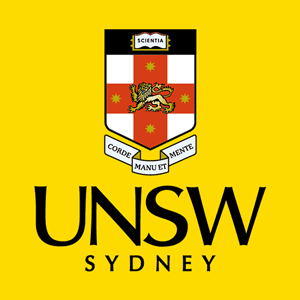Gain tools to communicate, direct and lead. Specialities in education, health, nursing, and more.

A leadership and management masters is an advanced postgraduate program for managers and professionals. Participants learn how to direct work activities, with an increased emphasis on influencing and a reduced focus on the 'doing' side of things.
Leadership courses prepare you for senior roles by developing your management strategies, vocabulary and confidence. You gain new perspectives on the art of managing and leading, along with tools to make an immediate impact. Various specialisations are available, including in leadership, management, healthcare, education, and nursing.
Specialisations
Why This Degree Is Worth It
Becoming a manager starts you out on a different career path than what you were formerly on. You may be trained in business, technology, engineering, healthcare, education, science or something else. But that education is professional training to do a certain job. As you rise into the management ranks, a different kind of learning is required.
Leadership and management programs are about learning how to wield influence on others. Your communication style, problem-solving approaches, consultation methods and planning skills are examples of qualities you should develop and refine. Leaders and managers require a different toolkit to bring out the best in others.
Studying leadership and management at university may bring surprising benefits, as you move beyond an education that may have been confined to what you observed in the workplace. Students achieve breakthrough gains in their leadership understanding and add practical strategies to achieve real results. Graduates also come away with a qualification that demonstrates a commitment to self-improvement and a desire to capitalise on their innate leadership potential.
Related: Is a Masters in Leadership Worth It?
Leadership
An online Master of Leadership degree is for professionals with significant experience. The idea of the program is to get you thinking about leadership styles and methods. Self-reflection is usually a big part. By contemplating theory and your own practice, you develop strategies to be a better leader.
Deakin University - Master of Leadership
Deakin University has the ideal leadership and management degree if you want to advance your career efficiently. The program centres on professional practice. You demonstrate competencies by exploring activities you do in the workplace. The Deakin Master of Leadership has many great features, including that it is ultra affordable, can be completed in 12 months, doesn't interrupt your career, and allows for high levels of interaction with instructors and classmates. Topics include: communication, digital literacy, teamwork, adaptive mindsets, leading and developing people, and driving strategic results.
Management
A Master of Management is a general managerial program that delivers transferrable executive skills. Salary benefits to graduates come from improved on-the-job performance and enhanced communication skills. As well, holding a management qualification gives employers more confidence to appoint you to senior roles.
UNSW Online - Master of Management
UNSW’s 100% online Master of Management provides relevant, practical and contemporary business management skills. The program is delivered by the Australian Graduate School of Management (AGSM) at UNSW’s Business School. With aims of unlocking potential and giving you an employment edge, students learn business fundamentals plus contemporary subjects. Electives include Analytics and Business, Entrepreneurship and Innovation, and Managing with Digital Technology. So you graduate with confidence, theory is blended with practical application through experiential teaching, projects and entrepreneurial practices.
Educational Leadership
A Masters in Educational Leadership is for teacher trainers and other learning managers. Program participants explore how to better support professional development and learning innovation.
Education leaders are needed in schools, universities, corporate settings, healthcare, the public sector and in community settings. A master's education provides authority and skills to help you take on new challenges. The degree covers topics such as leading staff, measuring and improving learning outcomes, and digital learning.
Health Management
If you're in health care, an online Master of Health Management may be the ideal leadership program. These courses are aimed at people who know the health industry and are looking for greater job responsibility.
Different specialisations are available, allowing you to choose the best course to meet your career goals. Masters degrees are, for example, available in health administration, health information management, health services leadership, digital health, and nursing management.
Nursing Management
As an experienced nurse, you can specialise in leadership and management with a Masters of Nursing. The postgraduate degree prepares you for senior roles such as manager of a nursing team, nursing coordinator, or a health services or facilities manager.
Students explore topics such as how to lead teams, financial management, collaboration in health care, and conflict and dispute resolution. Online courses are designed for working professionals, and you can continue your nursing duties while studying for your degree.
Project Management
Gain the credentials and operational framework to excel as a project manager with a Masters in Project Management. The program covers all the essential skills to effectively direct a project.
Participants learn to plan projects, manage finances and risks, and communicate effectively. This comprehensive education prepares them for PM roles across industries. Graduates gain a university qualification and a versatile skill set, positioned for roles such as project manager, project coordinator, project engineer, and business analyst.
Technology Management
Prepare to to lead in tech fields with a Masters in Technology Management. The degree explores enterprise technology, AI, and cybersecurity from a manager's perspective. You gain knowledge and insights with which to lead projects and organisational change.
The program prepares you for high-level management roles, enhancing skills in digital systems management, data analytics, and strategic planning. Graduates perform roles such as IT Manager, CIO, CTO, and more, with excellent job and salary prospects.
What You'll Study (Course Structure)
Master's degrees in leadership and management explore different aspects of the job of being a manager in charge of people and operations. Using theory and principles, case studies, personal reflection and projects, you'll engage your mind on leadership issues and strategies.
The degrees are, in some respects, like stripped down versions of a Master of Business Administration. Programs may be shorter than an MBA, consisting of 8 subjects instead of 12. And the 'missing subjects' tend to be business units. There is a firm focus on developing your management and leadership skills.
By studying online as a part-time student, you can earn your degree while working full-time. These programs are designed for working professionals.
Topics you'll likely cover include the following.
An adaptive mindset is flexible and able to effectively respond to or lead disruption in the workplace. This leadership quality is becoming essential in a business environment where change is the norm, not the exception. Managers and leaders without this attribute, who are stuck in a repeating cycle, will struggle to bring their organisations forward.
Techniques to be more adaptive in your approach include to:
- practice design thinking, which means mapping out problems, constraints and solutions
- be a student of your customers and the business environment
- trust your instincts when considering future opportunities
- focus on value adding as opposed to busy work
- be a lifelong learner who values curiosity above demonstrating expertise
- see mistakes as learning and growth opportunities.
Communicating well is a recurring theme in leadership and management courses. Strong communication skills are essential in almost all managerial activities. Communication is important for leaders in order to achieve buy-in and carry people along, instil a corporate vision, solve problems collaboratively, and manage critical external relationships.
One of the key communication skills you'll gain from a Master of Leadership course is the ability to fluently talk about management issues. Spending time reading, analysing and writing about relevant topics invariably increases your knowledge base and familiarity with key terms. The result is that you should be easily able to hold your own in senior executive meetings. For your career progression, you'll also be able to give great responses to interview questions.
To gain insight into how to become a more effective leader, you may study leadership theory. This is concerned with how leaders are built, made or otherwise come to be.
Some examples of leadership theories are:
- Transformational or Relationship Theory: Transformational leaders motivate and inspire others by modelling the kinds of behaviours they want and by demonstrating passion and enthusiasm. They win over their staff through the positive nature of their relationships.
- Great Man Theory: This theory assumes that leaders are born with a certain combination of traits that makes them who they are. They rise to high positions naturally while others, who lack such traits, may struggle to ever become good leaders.
- Transactional or Management Theory: Some leaders may emerge by adapting to and succeeding within the governance system of their organisation. They are rewarded for performing well in a structured environment.
How people, both as individuals and groups, behave within a company or other organisation is the topic of interest when you study organisational behaviour. As part of a management or leadership course, you'll examine strategies to elicit the kinds of behaviours that maximise performance.
A simple example of organisational behaviour management is positive reinforcement. When, as a manager, you notice an employee or team doing something well, you reward that. Positive reinforcement might simply be a personal acknowledgement. But you can also draw attention to strong performance publicly or even build salary rewards into your performance management system.
A further behavioural management strategy example is open communication. To improve the flow of information, you identify any barriers to communication and try to remove or overcome them. For example, you can facilitate 360 degree feedback, where staff have the ability to provide anonymous feedback on the performances of their business or bosses.
Career Opportunities
Earning a Master of Leadership and Management (or similar) creates career opportunities across all sectors of the Australian economy. Effective managers and leaders are needed everywhere to administer operations, manage teams, and drive productivity improvements. A general program of study will enhance your career prospects no matter which sector you're in.
Gaining an education in managing and leading is valuable because you probably did little exploration of this field in previous university studies. The programs fill knowledge gaps, introducing new concepts that you may not encounter in your daily professional experiences. Graduates benefit from a proven commitment to being a good manager plus the knowledge and skills to maintain an upward career trajectory.
Specialised programs are obviously designed to give students an edge in certain fields. For example, a leadership in education course prepares you to be a school principal, program director or education administrator among other occupations. A health management qualification is ideal for jobs such as practice manager or nursing unit manager.
Entry Requirements
As a postgraduate course, a bachelor degree is normally required to be admitted. But, if you have sufficient management experience, an alternative pathway may be to do an embedded graduate certificate course. Completed subjects count as credit towards your master degree.
Experience requirements generally apply for these kinds of programs. Students need the experiences of being managed and doing the managing to contextualise course content. Here are example course admission requirements.
Standard entry requirements for the Master of Leadership are that you have a bachelor degree (any discipline) and at least five years of experience in leadership roles.
Pathways are also available if you're without a bachelor degree but meet work experience requirements. Specifically, you can progress to the masters without a degree after successfully completing the embedded Graduate Certificate of Leadership course.
The total tuition fee for the whole degree is from $23,825 in 2024. A FEE-HELP loan is available for domestic students to cover course fees.
Course duration is 1 year fast-track. Students study part-time online while normally working full-time.
Key dates: Study periods are in March, July and November.
For entry into the Master of Management program, applicants should have a bachelor’s degree in any discipline.
Entry based on work experience only
Applicants without an undergraduate degree may be able to gain entry by completing the Graduate Certificate in Business nested qualification. A sufficient course admission benchmark for this online course is at least three years of relevant work experience.
Recognition of prior learning
The number of subject required to complete the program may be reduced from 12 subjects down to 8 subjects if you completed a related business degree within the past 10 years. You can gain RPL for four business subjects in the program and only have to do the remaining management subjects.
Key dates: Program intakes are in January, March, May, July, September and October.
Tuition fees
For 2024 starters, the indicative fee for the full program is $58,000.
FEE-HELP loans to cover tuition fees are automatically available from the Australian Government for eligible domestic students.
Fully online degrees are unavailable to international students studying in Australia on a student visa.











